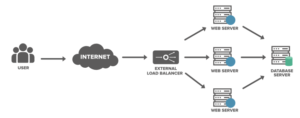
What is Artificial Intelligence?
Artificial Intelligence (AI) can be defined as the simulation of human intelligence in machines that are programmed to think and learn like humans. It encompasses a wide range of technologies and applications, aiming to replicate and enhance human cognitive abilities.
AI systems are designed to analyze vast amounts of data, recognize patterns, and make decisions or predictions based on that information. The goal is to enable machines to perform tasks that typically require human intelligence, such as speech recognition, problem-solving, and decision-making.
How does AI Work?
AI works by utilizing various techniques and algorithms to process data and learn from it. Machine Learning (ML) is a subset of AI that focuses on training machines to learn from data without explicit programming. It involves providing algorithms with large datasets and allowing them to identify patterns and make accurate predictions.
Deep Learning, a subset of ML, involves the use of neural networks to simulate the behavior of the human brain. These networks can analyze vast amounts of data and make complex decisions by recognizing patterns and correlations.
Advantages of Artificial Intelligence
- Automation: AI can automate repetitive, mundane tasks, freeing up valuable time for employees to focus on more complex and creative projects.
- Efficiency: AI systems can process and analyze vast amounts of data at incredible speeds, leading to faster and more efficient decision-making.
- Improved Accuracy: With AI, the probability of errors is significantly reduced, as machines can perform tasks with precision and consistency.
- Personalization: AI enables businesses to deliver personalized experiences to customers by analyzing their preferences and behavior.
- 24/7 Availability: AI-powered chatbots and virtual assistants can provide round-the-clock customer support, enhancing customer satisfaction.
Disadvantages of Artificial Intelligence
- High Initial Costs: Implementing AI systems can be expensive, requiring significant investments in infrastructure and skilled professionals.
- Lack of Human Touch: AI lacks human emotions, empathy, and intuition, making it challenging to replicate certain human interactions and judgments.
- Privacy Concerns: The use of AI involves collecting and analyzing massive amounts of data, leading to concerns about privacy and data security.
- Unemployment: The automation of tasks through AI can lead to job displacement in certain industries, requiring individuals to acquire new skills to stay relevant.
- Dependency: Overreliance on AI systems may lead to vulnerabilities and disruptions if the technology fails or malfunctions.
Conclusion
The era of Artificial Intelligence is upon us, bringing with it immense potential and transformational opportunities. From enhancing efficiency and accuracy to enabling personalized experiences and automation, AI is revolutionizing various industries.
However, it is crucial to address the challenges and concerns associated with AI, such as the high costs, lack of human touch, and privacy issues. Finding a balance between harnessing AI’s power and preserving human capabilities is key.
As technology continues to advance, embracing AI and its possibilities will be essential for businesses to stay competitive and thrive in the ever-evolving digital landscape.




[…] Artificial Intelligence (AI) is an ever-evolving field that has the potential to revolutionize businesses across various industries. From virtual assistants to self-driving cars, AI is transforming the way we live and work. In this blog post, we will explore the different types of AI and their applications in businesses. […]
[…] models powered by AI have transformed the way we communicate and interact with technology. These innovative tools can […]